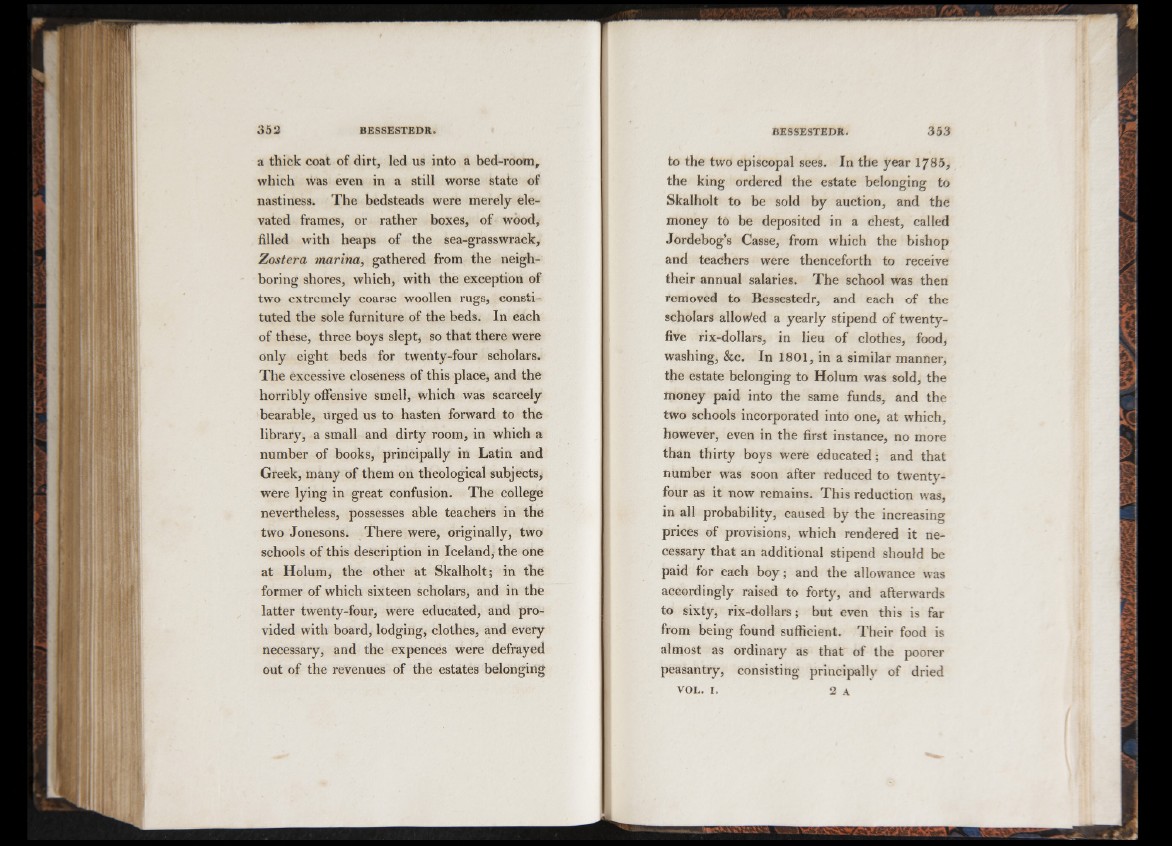
a thick coat of dirt, led us into a bed-room,
which was even in a still worse state of
nastiness. The bedsteads were merely elevated
frames, or rather boxes, of wood,
filled with heaps of the sea-grasswraek,
Zoster a marina, gathered from the neighboring
shores, which, with the exception of
two extremely coarse woollen rugs, constituted
the sole furniture of the beds. In each
of these, three boys slept, so that there were
only eight beds for twenty-four scholars.
The excessive closeness of this place, and the
horribly offensive smell, which was scarcely
bearable, urged us to hasten forward to the
library, a small and dirty room, in which a
number of books, principally in Latin and
Greek, many of them on theological subjects,
were lying in great confusion. The college
nevertheless, possesses able teachers in the
two Jonesons. There were, originally, two
schools of this description in Iceland, the one
at Holum, the other at Skalholt; in the
former of which sixteen scholars, and in the
latter twenty-four, were educated, and provided
with board, lodging, clothes, and every
necessary, and the expences were defrayed
out of the revenues of the estates belonging
to the two episcopal sees. In the year 1785,
the king ordered the estate belonging to
Skalholt to be sold by auction, and the
money tó be deposited in a chest, called
Jordebog’s Casse, from which the bishop
and teachers were thenceforth to receive
their annual salaries. The school was then
removed to Bessestedr, and each of the
scholars alloWed a yearly stipend of twenty-
five rix-dollars, in lieu of clothes, food,
washing, &c. In 1801, in a similar manner,
the estate belonging to Holum was sold, the
money paid into the same funds, and the
two schools incorporated into one, at which,
however, even in the first instance, no more
than thirty boys were educated; and that
number was soon after reduced to twenty-
four as it now remains. This reduction was,
in all probability, caused by the increasing
prices of provisions, which rendered it necessary
that an additional stipend should be
paid for each boy; and the allowance was
accordingly raised to forty, and afterwards
to sixty, rix-dollars; but even this is far
from being found sufficient. Their food is
almost as ordinary as that of the poorer
peasantry, consisting principally of dried
v o l . i . 2 a